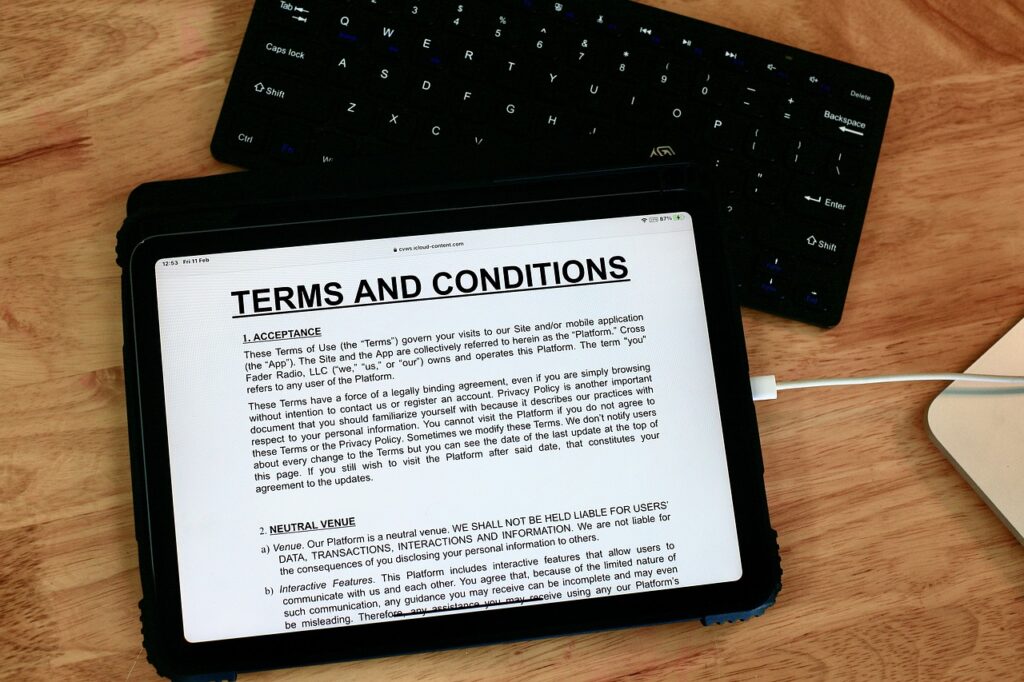When it comes to real estate transactions, lease purchase agreements can be a great option for both buyers and sellers. These agreements allow buyers to rent a property with the option to buy it at a later date, giving them time to save up for a down payment or improve their credit. For sellers, lease purchase agreements provide a steady stream of income and a potential buyer for their property.
However, lease purchase agreements can also be complicated and come with their own set of risks. There are several common mistakes that buyers and sellers should avoid when entering into a lease-purchase agreement. By understanding these mistakes and taking preventive measures, you will learn “How to Avoid Common Mistakes in a lease purchase Transaction”. This will help to ensure a smoother and more successful transaction.
Key Takeaways
- Lease purchase agreements can be a great option for both buyers and sellers, but they come with their own set of risks.
- Common mistakes to avoid include failing to understand key terms and conditions, not identifying all parties involved, and not taking preventive measures to protect yourself.
- By taking the time to understand the process and potential pitfalls, you can increase your chances of a successful lease purchase transaction.
Understanding Lease Purchase Real Estate Transactions
A lease purchase real estate transaction is a type of agreement where you rent a property for a specific period with an option to buy the property at the end of the lease term. This type of agreement can be beneficial for both the buyer and seller, but it is essential to understand the terms of the lease-purchase agreement to avoid any mistakes.
When you enter into a lease-purchase agreement, you agree to pay rent for a specific period, which is usually two to three years. During this time, you can purchase the property at a predetermined price. The seller cannot sell the property to anyone else during the lease term.
It is essential to understand that the lease-purchase agreement is legally binding, and you will be required to follow the terms of the agreement. If you fail to pay rent or do not exercise your option to purchase the property, you may lose your deposit and any rent credits that you have accumulated during the lease term.
Before entering into a lease-purchase agreement, you should review the terms of the agreement carefully. Make sure that you understand the rent amount, the length of the lease term, the purchase price, and any other terms of the agreement. You should also have the agreement reviewed by a real estate attorney to ensure that it is legally binding and in your best interest.
In summary, a lease purchase real estate transaction can be a beneficial agreement for both the buyer and seller. However, it is essential to understand the terms of the agreement before entering into it. Make sure that you review the agreement carefully, understand the terms, and have the agreement reviewed by a real estate attorney to avoid any mistakes.
Identifying the Parties Involved
When entering into a lease purchase real estate transaction, it is important to understand the parties involved. There are two primary parties in a lease-purchase agreement: the seller and the buyer.
The Seller
The seller is the current owner of the property being sold. In a lease-purchase agreement, the seller agrees to lease the property to the buyer for a specified period, with the option to purchase the property at the end of the lease term.
As the seller, it is important to ensure that the lease-purchase agreement is drafted correctly and that all terms and conditions are clearly stated. It is also important to conduct due diligence on the buyer to ensure that they are financially capable of completing the purchase at the end of the lease term.
The Buyer
The buyer is the individual or entity that is leasing the property with the option to purchase it at the end of the lease term. The buyer must pay a non-refundable option fee to the seller to secure the option to purchase the property.
As the buyer, it is important to conduct due diligence on the property to ensure that it is in good condition and that there are no hidden defects. It is also important to ensure that the lease-purchase agreement is drafted correctly and that all terms and conditions are clearly stated.
In summary, understanding the parties involved in a lease purchase real estate transaction is crucial to ensuring a successful transaction. As the seller or buyer, it is important to conduct due diligence and ensure that all terms and conditions are clearly stated in the lease-purchase agreement.
Key Terms and Conditions

When entering into a lease purchase real estate transaction, it is important to understand the key terms and conditions of the agreement. These terms and conditions will dictate the rights and responsibilities of both the buyer and seller and will help ensure a smooth and successful transaction. Here are some important terms and conditions to keep in mind:
Price Determination
One of the most important aspects of any lease-purchase agreement is the price of the property. In most cases, the price will be determined at the time the lease is signed and will be based on the current market value of the property. However, it is important to note that the price may be subject to change based on several factors, such as changes in the real estate market or changes in the condition of the property.
Lease Duration
Another important factor to consider when entering into a lease-purchase agreement is the duration of the lease. In most cases, the lease will be for several years, during which time the buyer will have the option to purchase the property. It is important to carefully consider the length of the lease, as well as any renewal options that may be available.
Maintenance Responsibilities
Finally, it is important to understand the maintenance responsibilities of both the buyer and seller. In most cases, the seller will be responsible for any major repairs or renovations that are needed during the lease period, while the buyer will be responsible for day-to-day maintenance and upkeep of the property. It is important to clearly define these responsibilities in the lease agreement to avoid any confusion or disputes down the line.
Overall, understanding the key terms and conditions of a lease purchase real estate transaction is essential to ensuring a successful and stress-free experience. By taking the time to carefully consider these factors, you can help ensure that your transaction goes smoothly and that you can achieve your real estate goals.
Common Mistakes to Avoid

When it comes to a lease purchase real estate transaction, there are several mistakes that you should avoid to ensure a smooth and successful process. Here are some common mistakes to avoid:
Not Conducting a Thorough Property Inspection
One of the most important steps in a lease purchase real estate transaction is conducting a thorough property inspection. Failing to do so can lead to surprises and expenses down the road. Make sure to hire a professional inspector to thoroughly examine the property and identify any potential issues. This will help you negotiate the terms of the lease and purchase agreement and avoid any unpleasant surprises.
Ignoring Legal Advice
Another mistake to avoid is ignoring legal advice. It’s crucial to work with a real estate attorney who can guide you through the legal aspects of the lease purchase transaction. They can help you understand the terms of the agreement, negotiate the terms, and ensure that you’re protected in case of any legal disputes. Ignoring legal advice can lead to costly mistakes and legal issues in the future.
Overlooking Financing Options
Finally, overlooking financing options is a common mistake that many people make in a lease purchase real estate transaction. Make sure to explore all of your financing options, including mortgage loans, lease purchase financing, and other alternatives. This will help you find the best financing option for your situation and ensure that you’re able to complete the transaction successfully.
By avoiding these common mistakes, you can ensure a smoother and more successful lease purchase real estate transaction.
Consequences of Mistakes
Making mistakes in a lease purchase real estate transaction can have serious consequences, including financial loss and legal disputes. Here are some potential outcomes to be aware of:
Financial Loss
One of the most significant consequences of mistakes in a lease purchase real estate transaction is financial loss. If you make a mistake in the negotiation or drafting of the contract, you could end up losing a significant amount of money. For example, you might agree to a purchase price that is higher than the fair market value of the property, or you might agree to terms that are unfavorable to you as the buyer. These mistakes could result in a significant financial loss, especially if you are unable to complete the purchase of the property.
Legal Disputes
Another potential consequence of mistakes in a lease purchase real estate transaction is legal disputes. If you make a mistake in the negotiation or drafting of the contract, you could end up in a legal dispute with the other party. For example, you might disagree about the terms of the contract, or you might disagree about whether one party has breached the contract. These disputes can be costly and time-consuming, and they can also damage your reputation in the real estate industry.
To avoid these consequences, it is essential to be diligent and careful in your approach to lease purchase real estate transactions. Make sure that you understand all of the terms of the contract, and be sure to seek legal advice if you have any questions or concerns. By taking these steps, you can minimize the risk of making costly mistakes and protect yourself from legal disputes.
Preventive Measures

When it comes to a lease purchase real estate transaction, there are several preventive measures you can take to ensure a smooth and successful process. Here are some important steps to consider:
Hiring a Real Estate Attorney
One of the most important preventive measures you can take is to hire a real estate attorney. A real estate attorney can help you navigate the legal complexities of a lease purchase transaction and ensure that your rights and interests are protected. They can also review the lease-purchase agreement and guide on any potential issues or concerns.
Conducting a Title Search
Before entering into a lease-purchase agreement, it is important to conduct a title search on the property. This will ensure that the seller has clear title to the property and that there are no liens or other encumbrances that could affect your ability to purchase the property in the future.
Record a Memorandum of Option
Recording a memorandum of opinion is another preventive measure you can take to protect your interests in a lease purchase transaction. This document serves as a public record of your option to purchase the property, which can prevent the seller from selling the property to someone else during the lease period.
Place a Deed in Escrow
Placing a deed in escrow is another way to protect your interests in a lease purchase transaction. This involves placing the deed to the property in a neutral third-party escrow account until the purchase is completed. This ensures that the seller cannot sell the property to someone else during the lease period and provides added security for your investment.
Obtaining a Home Warranty
Finally, obtaining a home warranty is a preventive measure that can provide added peace of mind during a lease-purchase transaction. A home warranty can cover the cost of repairs or replacements for major systems and appliances in the home, which can save you money and reduce the risk of unexpected expenses.
By taking these preventive measures, you can minimize the risks and maximize the benefits of a lease purchase real estate transaction.
Conclusion
In summary, a lease purchase real estate transaction can be a great opportunity for both the buyer and seller, but there are some common mistakes that you should avoid to ensure a successful transaction.
Firstly, make sure you fully understand the terms of the agreement, including the purchase price, lease term, and any conditions or contingencies. It is important to have a clear understanding of your obligations and responsibilities as both a tenant and potential buyer.
Secondly, be sure to conduct a thorough inspection of the property to identify any potential issues or repairs that may need to be addressed before finalizing the transaction. This will help you avoid any unexpected expenses or complications down the road.
Thirdly, work with a qualified real estate attorney or agent who can guide you through the process and help ensure that all legal requirements are met. They can also help you negotiate favorable terms and protect your interests throughout the transaction.
Finally, be patient and prepared to walk away if the terms of the agreement are not favorable or if any issues arise during the process. Remember, a lease purchase transaction is a significant investment, so it is essential to take the time to make informed decisions and protect your interests.
By avoiding these common mistakes and following these best practices, you can increase your chances of a successful lease purchase real estate transaction and achieve your goals as a buyer or seller.
Frequently Asked Questions

What are the potential drawbacks of a lease-purchase agreement?
Lease purchase agreements can be risky for both buyers and sellers. For buyers, one potential drawback is that they may end up paying more for the property than it’s worth. Additionally, if the buyer is unable to secure financing at the end of the lease term, they may lose the option fee and any other money they’ve put towards the purchase. For sellers, a lease-purchase agreement can tie up their property for an extended period, which may prevent them from selling to someone else.
What are some common mistakes that can occur in a lease purchase real estate transaction?
One common mistake that buyers make is not thoroughly reading and understanding the terms of the lease-purchase agreement. Additionally, buyers may not adequately research the property or the seller before agreeing. Sellers may make the mistake of not properly screening potential buyers or not clearly outlining the terms of the agreement.
What should buyers be aware of when entering into a lease-purchase agreement?
Buyers should be aware of the potential risks and drawbacks of a lease-purchase agreement. They should also carefully review and understand the terms of the agreement, including the purchase price, option fee, and lease term. Additionally, buyers should ensure that they have a clear understanding of their financial obligations and responsibilities under the agreement.
How can buyers protect themselves from potential pitfalls in a lease purchase transaction?
Buyers can protect themselves by thoroughly researching the property and the seller before agreeing. They should also consult with a real estate attorney or other professional to ensure that the terms of the agreement are fair and reasonable. Additionally, buyers should be prepared to walk away from the transaction if they are not comfortable with the terms or cannot secure financing at the end of the lease term.
What are some common reasons for a lease-purchase agreement to fail?
Lease purchase agreements can fail for a variety of reasons, including a buyer’s inability to secure financing at the end of the lease term, a seller’s unwillingness to sell the property at the agreed-upon price, or a breach of contract by either party. Additionally, unforeseen circumstances such as job loss or illness can also lead to the failure of a lease-purchase agreement.
What steps can buyers take to ensure a successful lease purchase transaction?
Buyers can take several steps to ensure a successful lease purchase transaction, including thoroughly researching the property and the seller, consulting with a real estate attorney or other professional, and carefully reviewing and understanding the terms of the agreement. Additionally, buyers should be prepared to negotiate the terms of the agreement and should have a clear plan for securing financing at the end of the lease term.
I’m real estate investor, self-improvement coach, author, and publisher, Don Mayer. I would love to connect further with you to help you achieve your goals. If you are interested in learning more about lease purchasing a home, please take a look at my entry-level rent-to-own guide “The Ultimate Home-Finders Workbook”, and consider coming aboard and learning the steps to moving into a home of your own!

